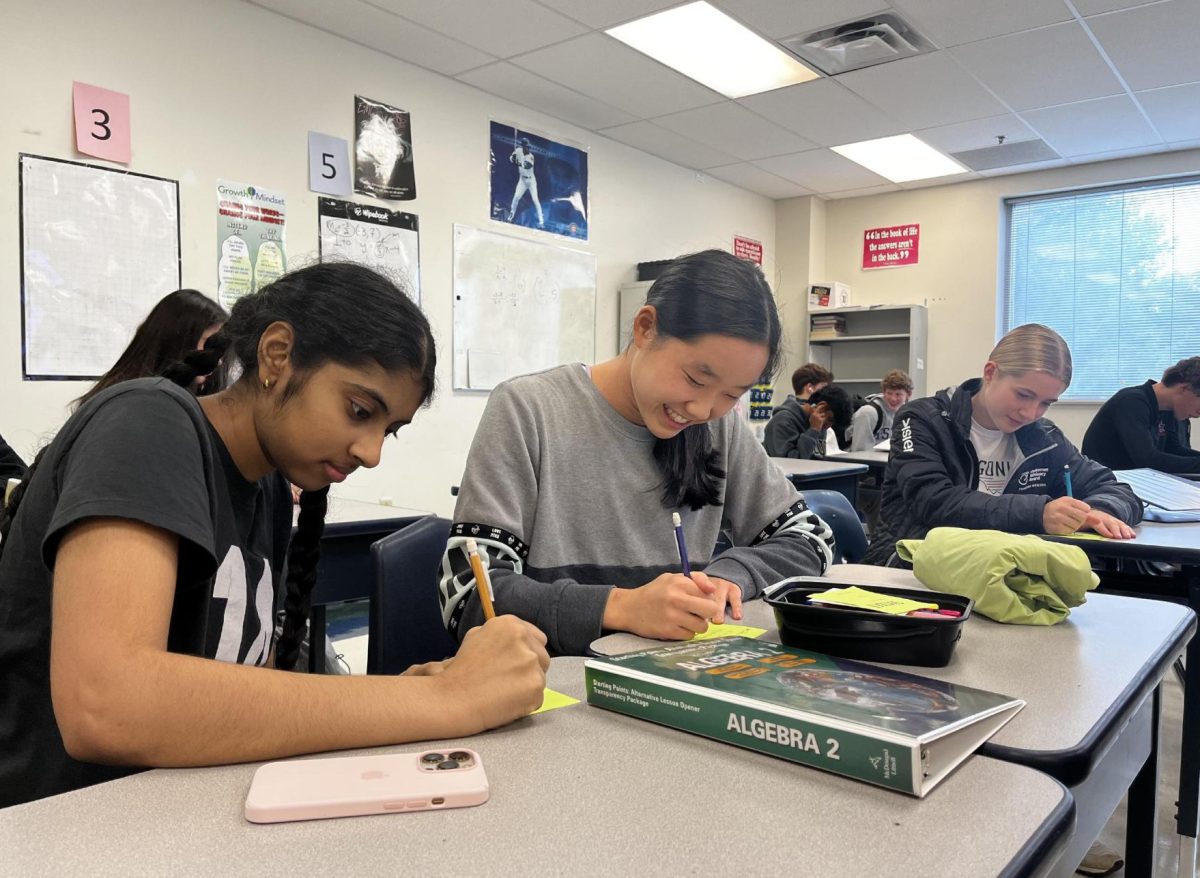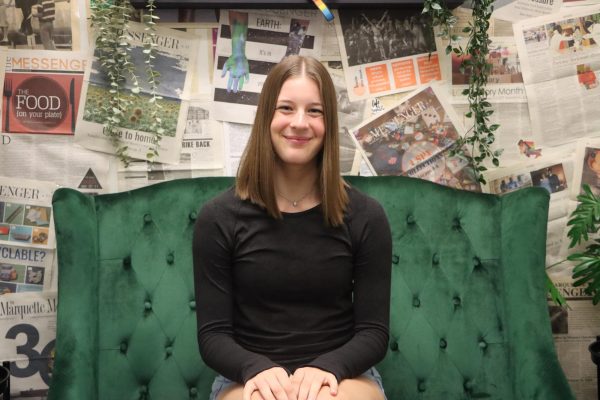Putting her gratefulness to paper, Lucy Gillian, freshman, wrote gratitude grams to her three best friends during Ac Lab homeroom today,
“They’ve all been going through some stress recently, and I just want to let them know that they’re appreciated,” Gillian said.
Today, all students had the opportunity to fill out slips of paper called gratitude grams during AcLab homeroom to show their gratitude for a student or staff member. Then, Student Council (STUCO) members collected these slips and will redistribute them on Monday, Nov. 25.
Freshman Principal Amy Sturges helped distribute the gratitude grams along with STUCO. The idea originated from Kara Zonies, math teacher.
“She came to me last year about doing it during M-Crew to get all our freshmen to do it,” Sturges said.
Then, Sturges and Zonies decided that every grade level could participate in gratitude grams during Ac Lab homeroom.
Sturges said it is important to let people know you are grateful for them when they otherwise might not realize it.
“Having that, that vocal or written kind of like ‘thank you, I appreciate you, I see you,’ It just, it helps ‘fill their bucket,’” Sturges said.
Junior Ishaan Brahmbhatt, vice president of STUCO, said STUCO has coordinated gratitude grams multiple times in the past.
“Gratitude grams are a way for students to spread kindness to other students,” Brahmbhatt said.
Brahmbhatt’s favorite part is receiving gratitude grams. Last year, Brahmbhatt received a gratitude gram from Abby Prodaneshtsky, 2024 graduate.
One of the benefits of gratitude is it prevents relative deprivation, Ashley Hobbs, Psychology teacher, said.
“Relative deprivation is something we’ve all fell guilty to before, which is feeling like we’re worse off than other people,” Hobbs said.
Gratitude can be as simple as listing three things you are grateful for, Hobbs said. Those three things can help a person remember how much they have, even when it seems like others have more.
Additionally, she said grateful people experience multiple benefits.
“People who live with optimism and even overconfidence tend to be happier and healthier and find it easier to make hard decisions,” Hobbs said.
Despite this, Hobbs said people should avoid toxic positivity, which is fake optimism.
To practice gratitude, Hobbs said a person can engage in mindfulness, such as taking a moment to be present with their thoughts can help a person remember what they have to be grateful for.
“Even when we go through hard things in life, if we can focus on what we’re grateful for and what we have versus what we don’t have then it gives us the ability to live a happier life,” Hobbs said.
Hobbs said gratitude helps her cope with hardship.
“The hardest thing I ever went through was losing my mom,” Hobbs said. “Nothing can ever take that away, that’s always going to be sad, but I am also super grateful to have a mom who loved unconditionally and that I have really good memories with her.”





